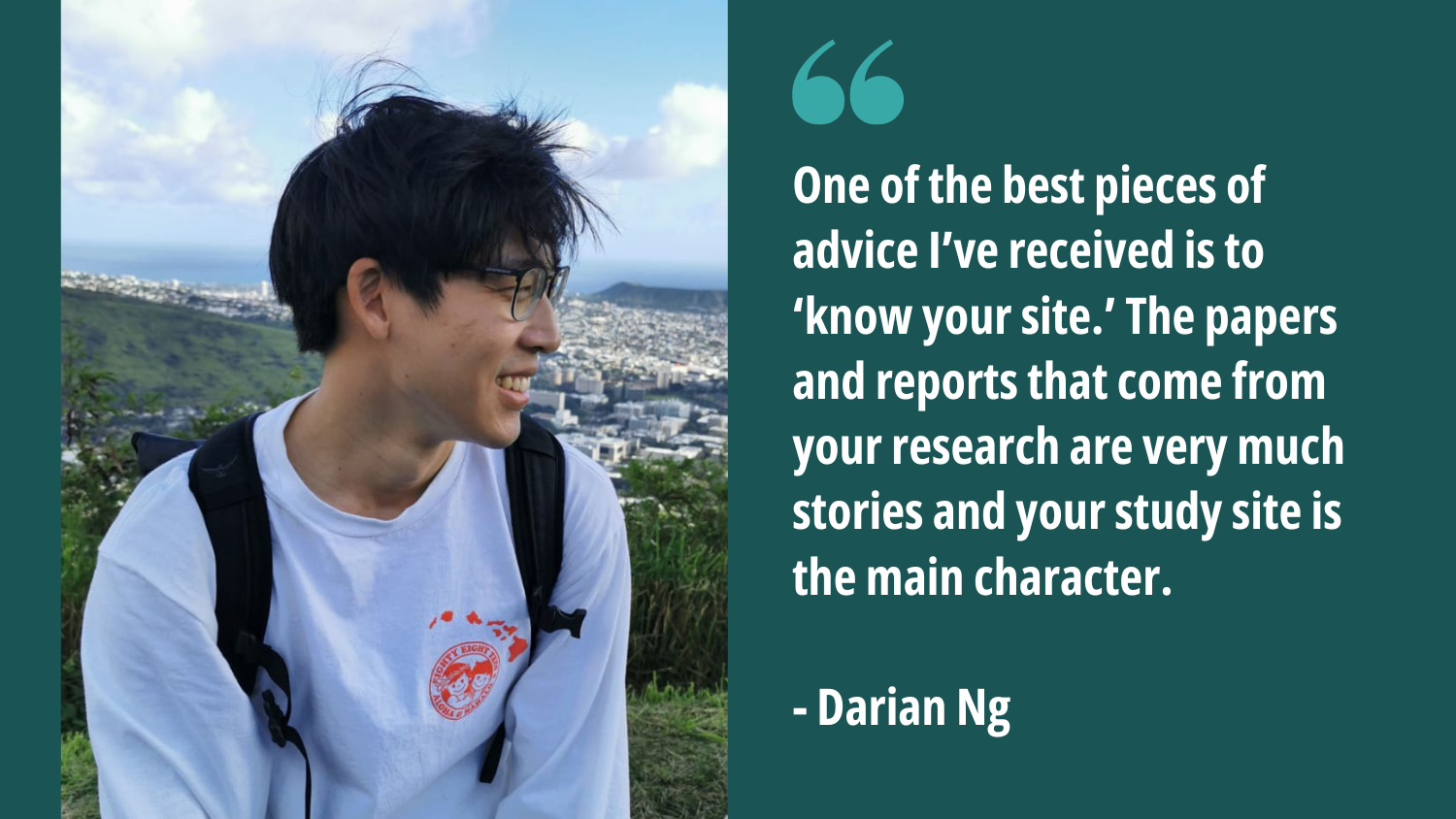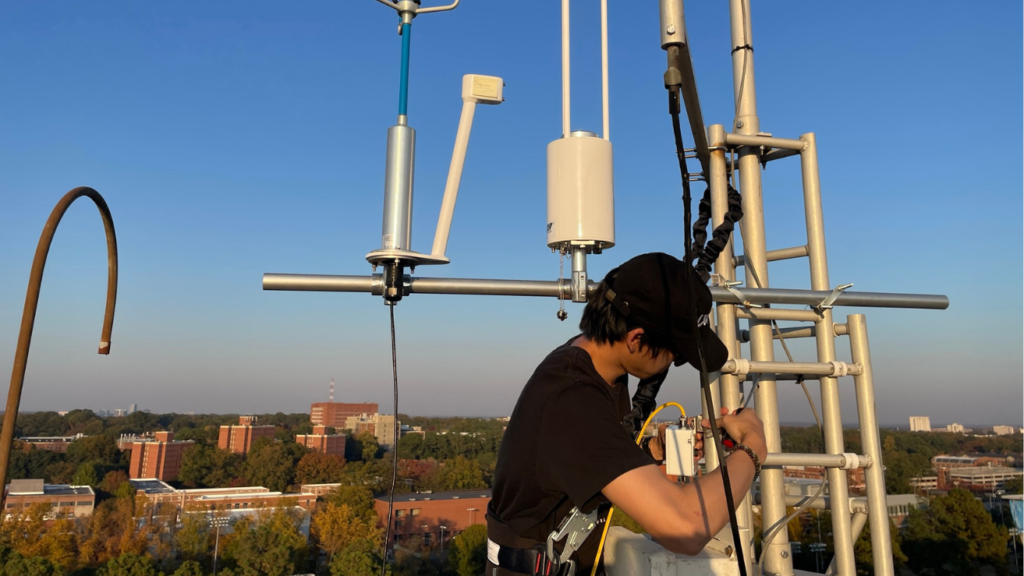Researcher Spotlight – Darian Ng

2023-24 Global Change Research Fellow
PhD Student, Marine, Earth, and Atmospheric Sciences
Advisors: Camilo Rey-Sanchez
About You
What do you study?
I study the land-atmosphere exchange of greenhouse gases with a focus on methane emissions from wetland ecosystems. My research primarily uses the eddy covariance method to measure the movement of carbon and energy in and out of the land. Wetlands are of particular interest because their high water table levels allow carbon that is removed from the atmosphere to be stored for extremely long periods. This makes them very effective as nature-based solutions to climate change, and some questions I try to answer are: how efficient are wetlands at removing carbon from the atmosphere, how might wetland carbon dynamics change in the face of our shifting climate, and how might we manage our wetlands to make best use of their carbon storage capabilities?
What (or who) influenced you to go into this field of study?
I had a few particularly strong influences on my entry into this field of study. In high school, I was fortunate to have a fantastic geography teacher, Conor McMullan, who first sparked my interest in physical geography. I loved the subject, but never saw research as a realistic goal that I could achieve. I however had my mind changed in university when a professor, Dr. Roland Stull, graciously gave me my first opportunity to pursue research in his lab as an undergraduate student. I learned a lot from Dr. Stull, but had wanted to direct my focus to a field that was more directly related to climate change. This led me to meet my future Masters advisor, Dr. Sara Knox, who provided the strongest inspiration for me to pursue the field of micrometeorology. She’s an amazing scientist and mentor who showed me the importance of this field of research and how rewarding it can be.
What do you think is the most pressing issue related to global change?
I believe that how we navigate the shift in dialogue from “will climate change happen?” to “how will we now adapt as the climate changes?” will be crucial to how our future on this planet shapes out. I don’t think we can deny that climate fatigue is real, so the conversations that we choose to have, how we approach them, and how we communicate our science will be the most important aspect of our research.
About Your Research

What is the most important thing that you’ve learned?
The symptoms of our changing climate – rising sea level and increasing temperatures – have already driven large-scale shifts in vegetation in coastal wetlands. The way that these ecosystems must adapt to the changing conditions will create a large departure in their carbon dynamics from what we currently understand them to be. In the context of the climate, this would primarily be expressed through changes in gross primary productivity, and methane emissions. There is still a lot of uncertainty in this area, but we are steadily improving our understanding of the extents and impacts of these changes.
Who will benefit from your research?
Improved understanding of coastal wetland response to climate change will help inform land management decisions to benefit local coastal communities. Additionally, results from my research can help better constrain biogeochemical models to inform more effective management of wetlands as nature-based climate solutions.
How would you describe your research to a 3rd grader?
Wetlands act like sponges to help clean our air and waters, but as the world gets warmer, the plants and soils in wetlands will also change, which can make these wetlands less spongy or less useful. We are now trying to understand how much their sponginess will change as the planet gets warmer, and how we might still be able to use them to keep our airs and waters clean.
About Your Global Change Research Fellow Experience
How do you expect the SE CASC Global Change Research Fellows Program to impact you and your work?
My work is very interdisciplinary with contributions from hydrology, biology, chemistry, physics, and ecology. The shared expertise among the global change fellows touches on many of these disciplines, and I have benefited greatly from talking to and learning from everyone in the program.
What advice would you give to a student that is interested in getting involved in your field?
One of the best pieces of advice I’ve received is to “know your site”. The papers and reports that come from your research are very much stories and your study site is the main character. Take some time during your field work to take in your surroundings and soak up your site with your own eyes and senses. Try to gain a personal connection with your site.
What has been the most rewarding part or your favorite part of being a SE CASC Global Change Research Fellow?
I found the week-long field intensive retreat to the North Carolina coast very impactful. Not only did it help to develop a close camaraderie among the fellows, but it provided invaluable opportunities to learn about the personal histories of the land from local storytellers and to see for myself the extent and impact of sea level rise in the southeast United States.
Learn more about the Southeast Climate Adaptation Science Center’s Global Change Research Fellows program.
- Categories:
